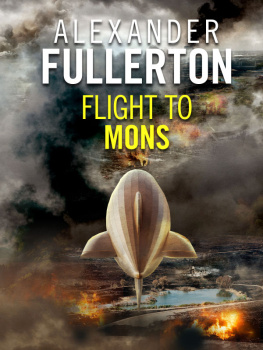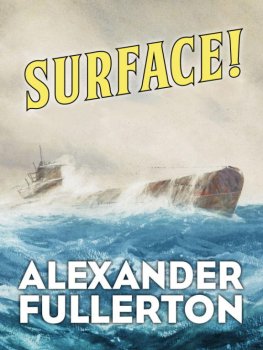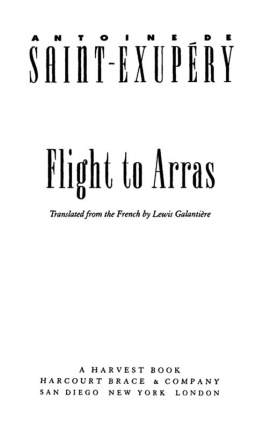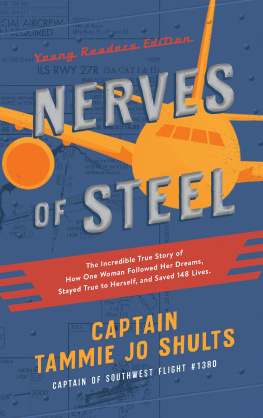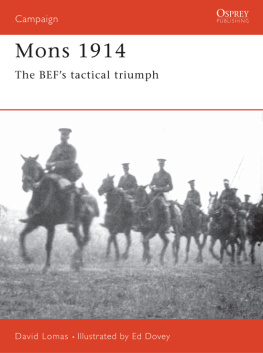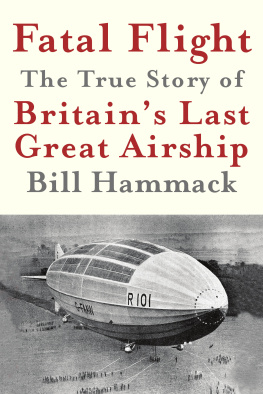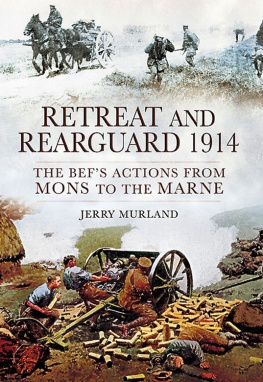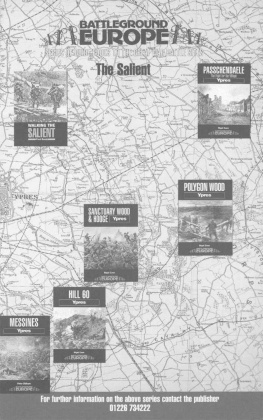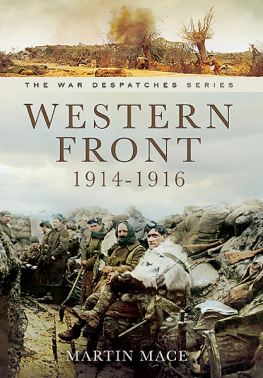Flight to Mons
Alexander Fullerton
Cold despite the heavy flying-suit and the fact hed only been off the ground about twenty minutes. But December, for heavens sake with the sun barely up, and only high enough over the Dover Strait to spread a smeary, pinkish glow on the close-packed roofs of Eastbourne, most of which was abaft the beam to port now, and flush the frosted slopes of Beachy Head, beyond and around which the seas glitter was visible only through gaps between drifting banks of mist. A thousand feet was too high, he decided: if there was a U-boat down there not that there would be within at least five miles, on account of shallows: the Head Edge to start with and then shallow patches as well as a whole litter of wrecks but except for those hazards the bugger would be as safe as houses.
So try 750 feet. Charlie Holt gently tilting the great gasbag downwards
Thinking of houses hed taken off from Polegate heading northwest, into the wind, and circling left-handed over Folkington and Willingdon hed looked for Amandas place, which was in open country on the Jevington side of Eastbourne, but failed to spot it. Lingering darkness and ground mist would have contributed to this, of course, but also the fact one had a few other things to do like keeping this ship in the air and pointing the right way.
Hell of a situation, though. Simultaneously thrilling and alarming.
Mind on the job now, Charlie. Easing the ship down: 900 feet, 850. A quarter-turn on the elevator handwheel had tilted the ships tailfins the flaps on the fins trailing edges enough to put down-angle on her. Very sensitive to their controls, these SS airships. Until his transfer to Polegate from Pulham in Norfolk only a few days ago, hed been flying a Coastal bigger in all respects and clumsier, with two engines, one at each end of the car, and a crew of five. Hed flown SSs Submarine Scouts before that, of course, and mostly here, at Polegate, but hed forgotten how handy they were. Crew of two: himself and his observer/wireless operator, namely PP OConnor in the front cockpit there. Charlie didnt know what the PP stood for, and since his maintenance crew, including the coxswain PO Harmsworth, quirkily called the poor fellow Wee-Wee which one could hardly do oneself PP OConnor hed doubtless remain. He had a Lewis machine-gun in that forward cockpit as well as the wireless set; it was used mainly for exploding mines.
Sun wasnt going to last long, wasnt going to be in any hurry to disperse that mist. All the sun had to climb into was cloud, inky blackness above a horizontal band of blinding orange fire. Blinding, so dont look at it, idiot The sea was what you were supposed to look at spotting U-boats and floating mines being the raison dtre for the Royal Navys 200-odd airships that were based around Britains coasts. The country had been brought close to the point of starvation in recent times, a lot closer than most of its population realised. This was 1917, the worst year yet in terms of losses of ships and cargoes; thered been about 600 sinkings up to the end of 15, more than a thousand in 16, and in this one year which wasnt over yet 2,500. Airships were a very effective counter to the submarine threat, though, especially now that the convoy system was being rigorously enforced; it was a fact of which the Royal Naval Air Service could reasonably be proud, that not one ship had as yet been lost when escorted by a blimp or blimps as well as surface ships.
Seven-fifty feet. Still more than somewhat murky down there. Not solidly, but a confusion of drifting banks and patches; in the short term the sun wasnt going to be much help. So make it 500 feet now. Might mean valving slightly letting a little gas out. Engine thundering away meanwhile: it was a 6-cylinder, 100-horsepower Green, with a tractor propeller meaning it pulled, as distinct from a pusher. And since this was head-in-air stuff, open cockpits, that thunderous buffeting slipstream of pre-iced air didnt make it any warmer; and these oversea patrols often lasted eight hours, sometimes ten.
SS-45 at 700 feet and descending steadily, with Beachy Head well astern now. Back on the field at Polegate several other airships would have lifted off, be heading for their own designated patrol areas. In theory and in better conditions than these sunrise might be as good a time as any for catching a U-boat on the surface. If it had been up during the dark hours to charge its batteries as submarines had to do and hadnt quite finished charging, it might be tempted, especially in poor visibility, to stay up another half-hour or so. Bastard would hear you, for sure when you were down this low hed have to be stone deaf not to but with his own engines pounding, usually driving him along at low speed while also pumping amperes into the box, you could hope to be reasonably close by the time he woke up to the danger and pulled the plug.
One had a very wide field of view, of course, far more than any escorting destroyer or trawler could ever have; when you were over a convoy youd spot a U-boat breaking surface, or the white feather of his periscope, on the convoys far side where an escort didnt have a hope of seeing it, or out ahead, where it might be waiting on the convoys route. Then if you were in a position to steer over it and drop a bomb well, glory be, but the odds were about a hundred to one you wouldnt. Your best endeavour would be to direct an escorting destroyer to the target, signalling either by wireless or by Aldis lamp. While simply being there, having the Hun see you and take avoiding action such as going deep rather than getting his torpedoes into some helpless merchantman, was an end in itself; in fact the primary objective. Getting ships and cargoes into port. Food, munitions, fuel. And lives especially those in troop transports to and from the French ports. One had been told that as long as the soldiers saw a blimp over them, theyd go below and get some sleep; otherwise theyd huddle on the transports decks, as near as they could get to lifeboats.
Five hundred feet. Levelling her now. With much of the seas surface at least in sight, though befogged to a variable degree. Course still southeast, at this stage. You steered with your feet on a rudder-bar, using the eye-level magnetic compass, and while continually searching for U-boats had also to keep an eye on the altimeter, the airspeed indicator, the statascope rise-and-fall indicator fuel gauges, gas-pressure gauge and engine controls. Left hand on engine controls primarily the throttle, of course, operated by lever-action on a Bowden wire and right hand on the elevator-wheel. And whichever hand you could spare for the lines controlling the gas and air valves on the envelope. There were 60,000 cubic feet of hydrogen gas in the envelope up there: hydrogen of course being inflammable, or when mixed with air, explosive.
Charlie had tried to explain some of the technicalities to Amanda yesterday whether or not shed had the slightest interest in any of it, and in point of fact it had been fairly obvious she hadnt. Hed given her lunch in the Queens Hotel in Eastbourne, and after that, at least partly as an evasion of what was actually in his mind and he was hoping might be in hers too, although he hadnt the nerve to put it to the test quite this soon see the hope go up in smoke quite yet hed suggested, How about giving my new ship the once-over? The proposal came in natural-enough sequence to exchanges in which shed mentioned how frequently airships from the Polegate field passed over her cottage, causing her to think of

